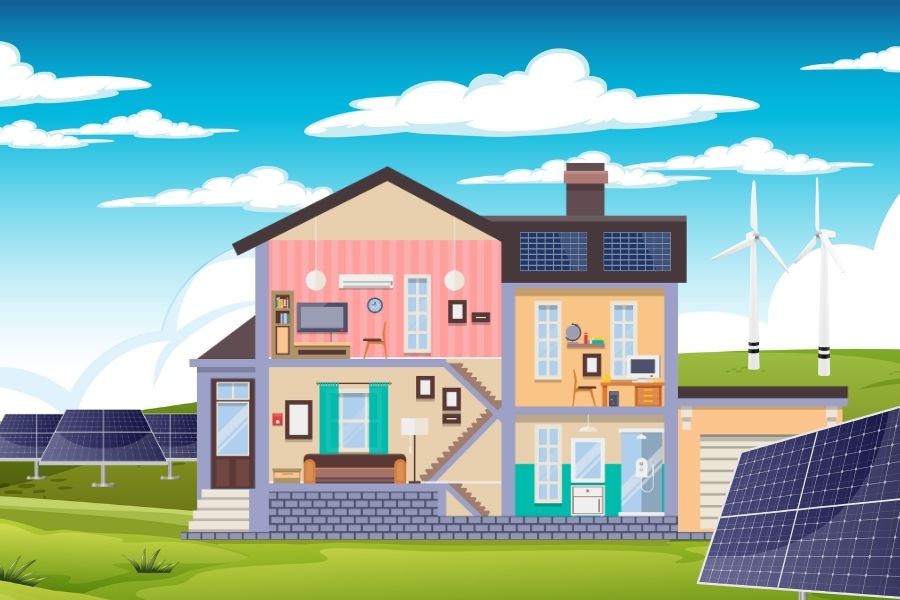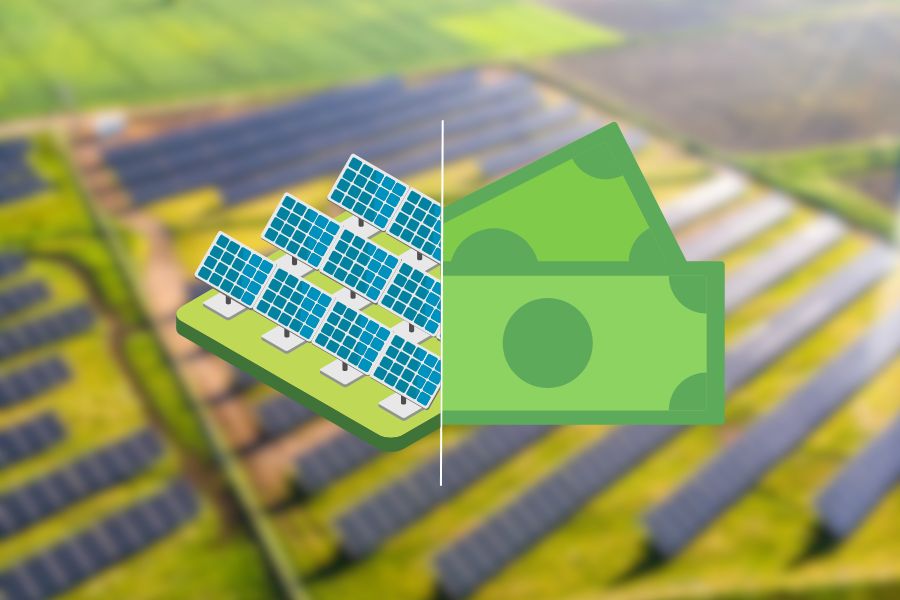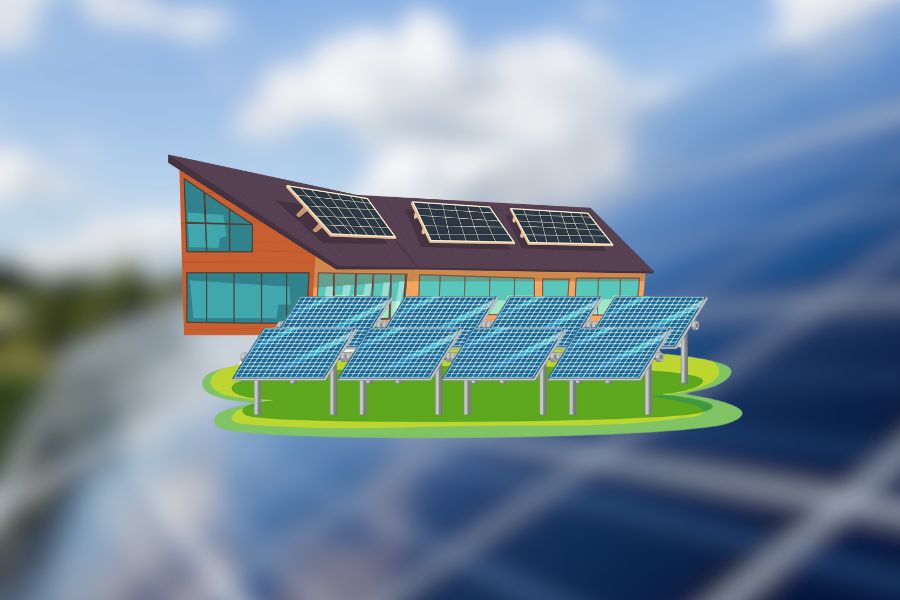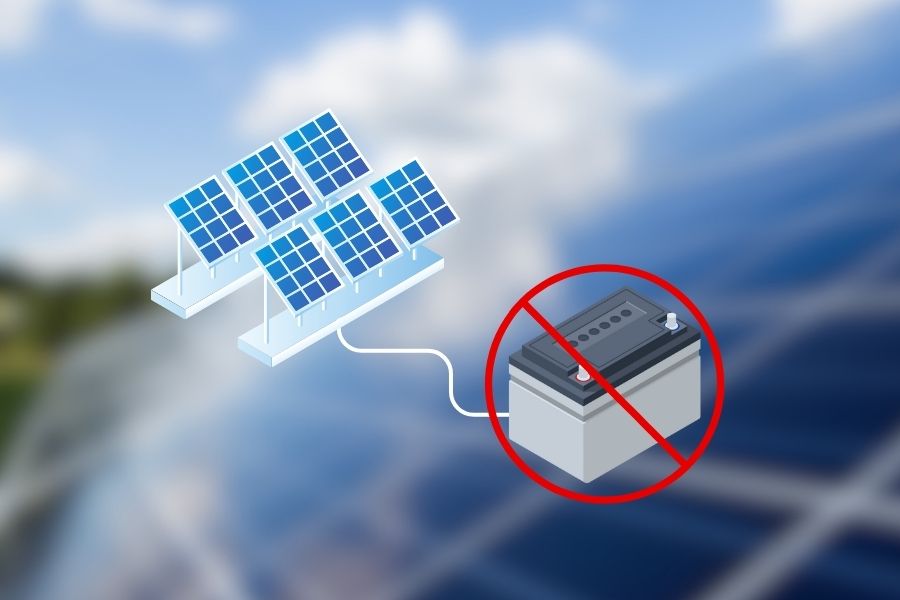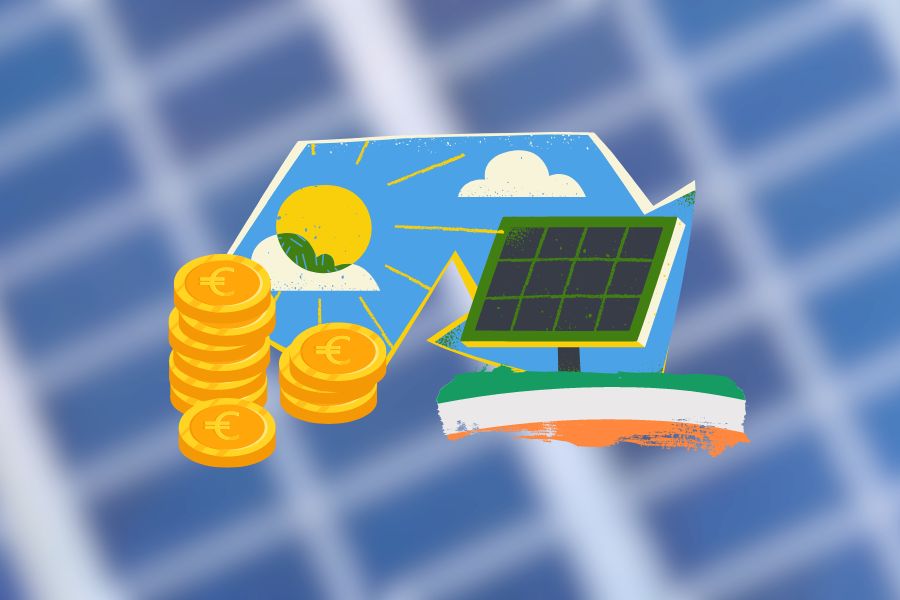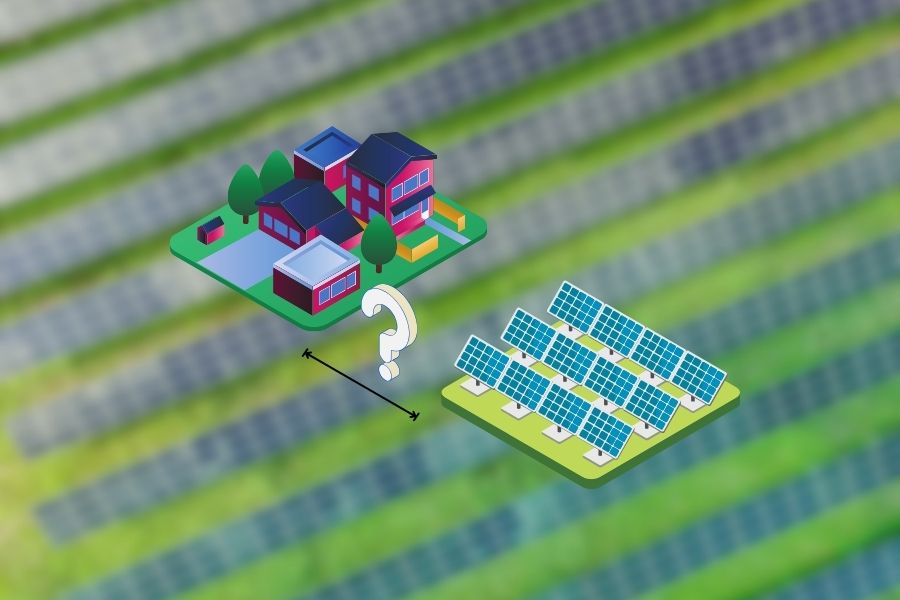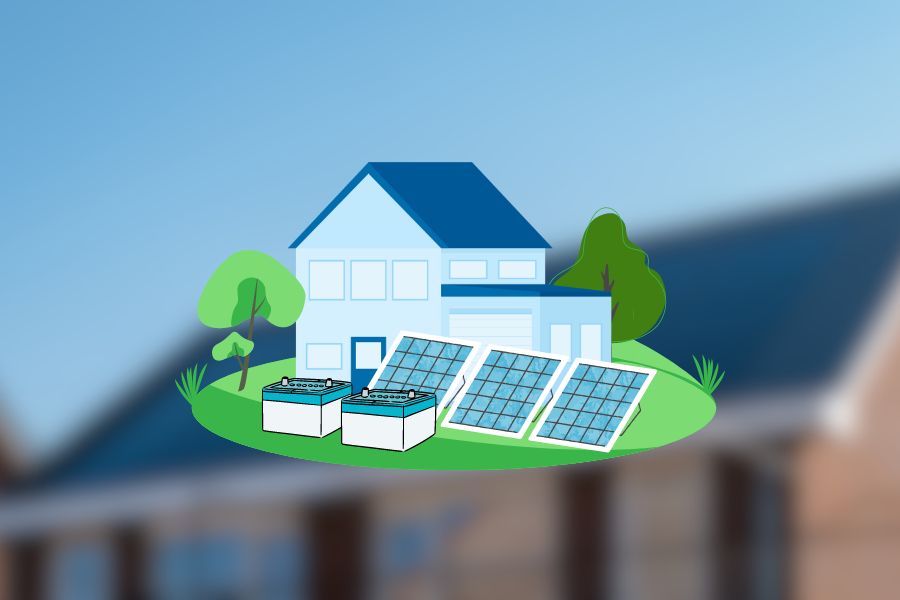Living off-grid in Ireland is a natural and achievable option where people can independently manage their power, water, and waste. More and more Irish people are choosing this way of life. The main question isn’t whether it’s doable but if an individual can adapt to its unique requirements. These include learning to use off-grid technologies, handling occasional loneliness, and embracing a more eco-friendly lifestyle.
What is Off-Grid Living?
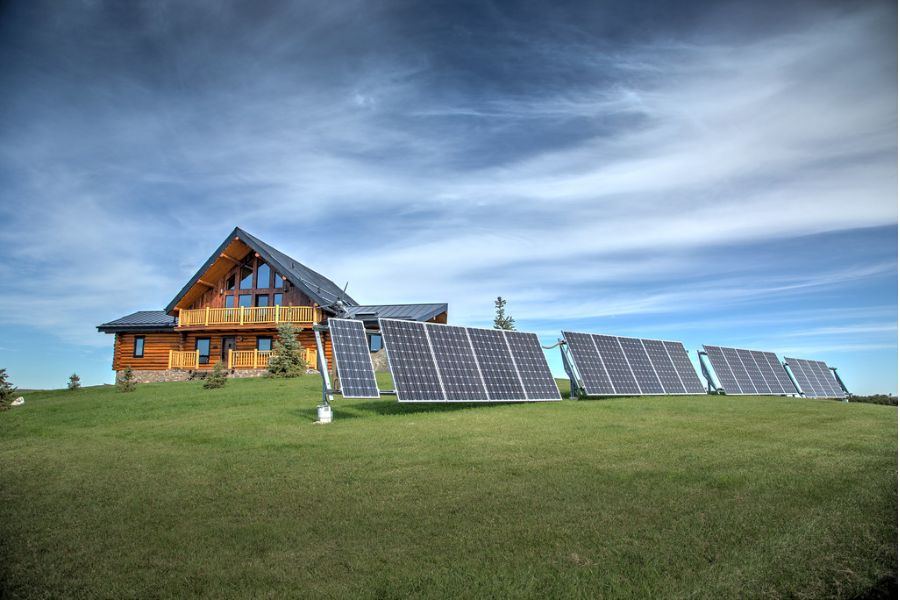
Off-grid living refers to a self-sufficient lifestyle independent of the services typically provided by public utilities, such as electricity, water, and sewage systems. The term “off-grid” signifies not being connected to the primary or national electrical grid.
Individuals or communities generate power in an off-grid lifestyle, often using renewable energy systems and sources like solar panels or wind turbines. They also typically manage their water supply through wells, rainwater harvesting, or filtration systems. One can manage waste disposal through composting toilets or septic systems.
Off-grid living can vary significantly in complexity and comfort levels. It can vary from rustic cabins in the wilderness to modern homes with advanced renewable energy generation and management technologies.
Many live off-grid for reasons such as environmental concerns, the desire for self-sufficiency, financial considerations, or the appeal of a simpler or more mindful way of life. However, this lifestyle also comes with challenges and requires a certain level of resourcefulness, resilience, and commitment.
For a comprehensive understanding of the governmental policies and regulations on off-grid living and solar energy, visit the Department of Environment, Climate, and Communications.
Why is Off-Grid Living Gaining Popularity in Ireland?
Off-grid living is gaining popularity in Ireland due to several reasons:
Desire for Sustainability
There’s a growing awareness and concern about environmental issues. Living off-grid allows individuals to minimize their carbon footprint by using renewable energy sources and reducing waste. This aspect aligns with the goals of many individuals seeking a more sustainable way of life.
Increased Self-Sufficiency
Living off-grid often involves growing your food, generating electricity, and being independent of public utilities. Autonomy can be appealing, offering a sense of resilience and self-reliance.
Advancements in Technology
The increasing efficiency and decreasing cost of renewable energy technologies, such as solar panels and wind turbines, have made off-grid living more feasible and affordable. This development is attracting more individuals to consider this lifestyle.
Financial Considerations
Depending on the specific situation and lifestyle, living off-grid can be less expensive than traditional living, especially over the long term. The cost of utilities is a significant expense for many households, and off-grid living can often reduce or even eliminate these costs.
Escaping Urban Crowds
Some people choose off-grid living for the peace and tranquility it can offer. Ireland’s countryside provides ample opportunities for those seeking a quieter, less crowded environment.
Community and Culture
There’s a growing community and culture around off-grid living in Ireland, with more resources, support networks, and social acceptance than ever before. This community can be welcoming and supportive, encouraging more people to consider this lifestyle.
What Are the Pros and Cons of Off-Grid Living in Ireland?
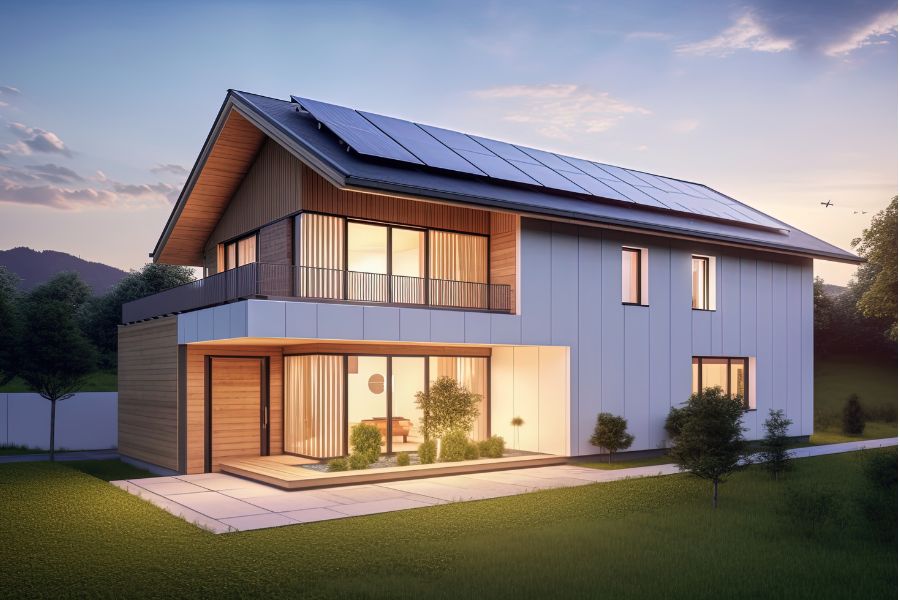
Off-grid living in Ireland, like anywhere else, has its own unique set of advantages and disadvantages:
Pros
- Sustainability: Living off-grid often relies on renewable energy sources like wind turbines, reducing your carbon footprint and environmental impact.
- Self-Sufficiency: With the right power tools and know-how, you can manage your own water and waste systems, generate your power, and grow your food.
- Cost Savings: After the initial investment in things like a wind turbine for power generation and a system for hot water, you might see a reduction in your living costs over time with decreased or eliminated utility bills.
- Connection with Nature: Off-grid living, especially on the west coast of Ireland, can bring you closer to nature. You might find yourself surrounded by native trees and engaging more with the outdoors.
- Peace and Tranquility: Living off-grid in Ireland often means residing in rural or remote areas. It is living away from the noise and bustle of city life, offering a peaceful and serene environment.
Cons
- Initial Costs: The upfront costs of off-grid living can be significant, including land purchase, housing, power tools, and installing systems for power, hot water, and waste management.
- Limited Access to Amenities: You may need more access to amenities and services depending on how remote your off-grid location is. For instance, it could be a long way to the nearest bus stop or public transport.
- Regulatory Challenges: There can be legal and regulatory hurdles, such as obtaining permits for installing wind turbines or planting certain native trees.
- Weather Dependence: Ireland’s weather can be unpredictable, particularly along the west coast. Again, this can affect renewable energy generation. Wind turbines, for instance, rely on sufficient wind to generate power.
- Communication Challenges: In more remote areas, mobile phone coverage may need to be better, potentially posing challenges for communication.
- Maintenance and Responsibility: Living off-grid requires ongoing care and high responsibility. From keeping your power tools in good order to managing your wind turbine or hot water system, it’s not just a living arrangement but a hands-on lifestyle. Consider integrating a solar battery storage system into your off-grid setup to ensure a consistent power supply during nights or cloudy periods.
We recommend carefully weighing these pros and cons when considering off-grid living in Ireland. What works for one person may not work for another, and success often depends on careful planning, preparation, and a willingness to adapt to this unique lifestyle.
How Can You Start Living Off-Grid in Ireland?
Research and Self-Evaluation
The first step is extensively researching off-grid living and evaluating whether this lifestyle fits you and your other household members. Consider your skills, comfort with potentially limited amenities like running water, your financial situation, and your readiness to adjust to a different rhythm of life.
Learn About Legal and Regulatory Aspects
Living off-grid in Ireland involves complying with various legal and regulatory guidelines. These may include building regulations, land use restrictions, permits for renewable energy systems, and waste management rules. Make sure you understand these aspects before proceeding.
Find Suitable Land
Location is critical in off-grid living. Look for a space that offers access to water, exposure to sunlight and wind (for renewable energy), and good soil (if you plan to grow food). In addition, consider proximity to public transport if you don’t have a car and decent mobile phone reception.
Building or Modifying a Home
Once you’ve secured land, the next step is to build or modify a home for off-grid living. Besides, this may involve:
- installing insulation
- setting up a system for rainwater collection or well water
- creating a composting toilet or septic system
- establishing your energy system
Set Up Your Energy Source
Your off-grid home will need a renewable source of energy. It could be a solar panel system, a wind turbine, or a combination of both. You’ll also need a system for storing this energy, such as batteries. When planning your off-grid home, understanding how many solar panels you need in Ireland can help meet your energy needs.
Plan for Water and Waste Management
Managing water and waste is a crucial part of off-grid living. In addition, it could involve setting up a well or rainwater collection system for running water and a composting toilet or septic system for waste. A system for heating water is also essential.
Get Equipped
Off-grid living requires specific tools and equipment. Power tools will be essential for maintaining your home, and a reliable car can be crucial, especially if you’re far from public transport.
Learn New Skills
The process of transitioning to off-grid living often necessitates learning new skills. It might include gardening, maintenance of renewable energy systems, or emergency preparedness.
Connect with Others
Other people are likely off-grid in Ireland, so connecting with these communities in person or online can provide invaluable advice and support.
Seek Professional Guidance
You should enlist the help of a company specializing in off-grid systems at some point during the process. They can provide guidance and expertise, particularly in setting up complex systems.
What Is the Future of Off-Grid Living in Ireland?
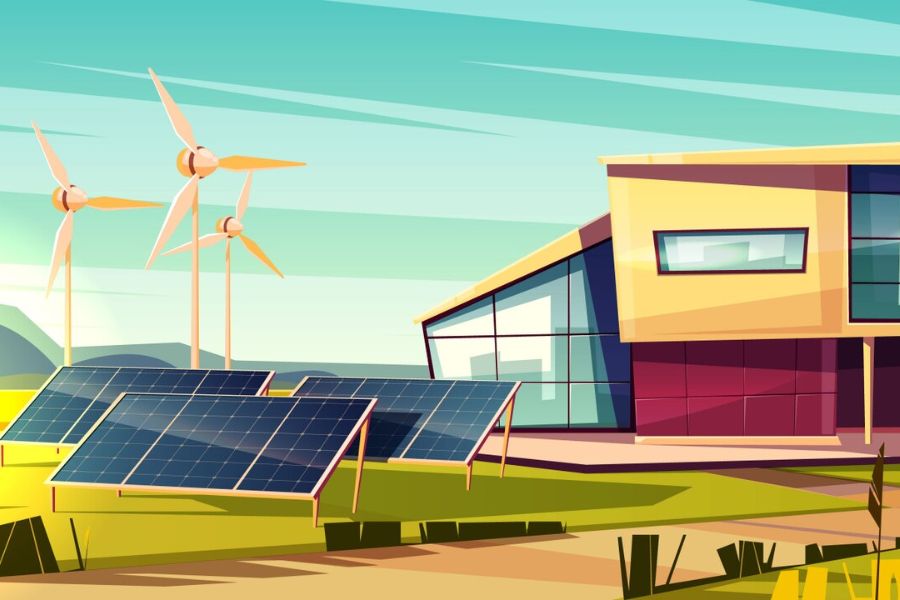
The future of off-grid living in Ireland is bright, with growing interest and advancements making it an increasingly appealing lifestyle choice.
First, off-grid living will likely gain popularity as more people seek sustainable and self-sufficient lifestyles. The expanding community of off-grid residents in Ireland, offering a wealth of shared knowledge and experience, will also make the transition easier for newcomers.
Technological innovations will continue to play a critical role. We can expect advancements in renewable energy technologies, such as more efficient solar panels and wind turbines, to make off-grid living more practical and comfortable. Similarly, improvements in energy storage solutions, like high-capacity batteries, can help alleviate issues associated with weather-dependent power generation.
Government policy support could also be a significant driver of off-grid living in the future. As Ireland and other countries worldwide intensify their efforts to combat climate change, we might see increased support for sustainable and self-sufficient living options. Moreover, this could come from regulatory adjustments, subsidies, or programs to make off-grid living more accessible and feasible.
Furthermore, there’s likely to be an increase in companies and services catering to off-grid living, making setting up and maintaining off-grid systems more straightforward. From power tools to mobile communication solutions, businesses will likely adapt to serve the growing off-grid community.
Do We Recommend Off-Grid Living in Ireland
Off-grid living can be a rewarding and sustainable lifestyle choice for many. However, whether it’s the right choice depends on various factors, including your circumstances, interests, and ability to adapt. The Sustainable Energy Authority of Ireland provides numerous resources and grants to promote and support off-grid living.
Off-grid living in Ireland offers the opportunity to be self-sufficient, reduce your environmental footprint, and connect more deeply with nature. This lifestyle can be deeply fulfilling, particularly for those who value independence and sustainable living. With its wind and solar power capacity, Ireland’s environment makes it a viable location for such a lifestyle.
However, it’s important to note that off-grid living also requires significant initial investment, planning, and learning. There are many aspects to consider, from setting up renewable energy systems and waste management to ensuring access to necessities like running water and communication services.
You’ll also need to be prepared to adapt to new situations, solve problems, and possibly forgo certain conveniences of on-grid living. For some, this lifestyle may also involve more isolation than typical city living, which may only suit some.
Before deciding to go off-grid, we recommend doing thorough research, connecting with others living off-grid, and realistically assessing your needs, abilities, and preferences. To help offset the initial costs of installing solar panels, check out the available grants for solar panels in Ireland.
Conclusion
Off-grid living in Ireland is a journey of discovery, resilience, and transformation that deeply rewards those who choose to embark on it. It’s a lifestyle that demands understanding the interplay between humans and the environment, encouraging us to embrace sustainability and reduce our environmental impact.
Off-grid living offers a profound sense of self-sufficiency and a deeper connection with nature, something our modern, often urban, lifestyles tend to dilute. But it’s not without its challenges. It requires commitment, investment, and adapting and learning new skills. However, these challenges can be surmountable with technological advancements and an ever-growing community of off-grinders sharing their knowledge and experience.
Our exploration of the Irish off-grid experience shows a future that is both viable and appealing. As society continues to shift towards sustainable living, more people may consider this lifestyle. Whether it’s right for you depends on your circumstances, values, and readiness to embrace a different rhythm of life.
In the end, the decision to live off-grid is a profoundly personal one. It’s about evaluating your lifestyle, understanding the trade-offs, and deciding what’s most important to you. So, whether you want to know about the autonomy, the connection to nature, or the eco-friendly aspect, remember that off-grid living is more than just a lifestyle choice; it’s a commitment to a sustainable future.
We hope this exploration of off-grid living in the Irish context has provided some insights and sparked your thoughts. If you’re considering this path, remember to take the time to research, prepare, and connect with others in the community. And, who knows? One day, you’ll share your off-grid journey with others!
